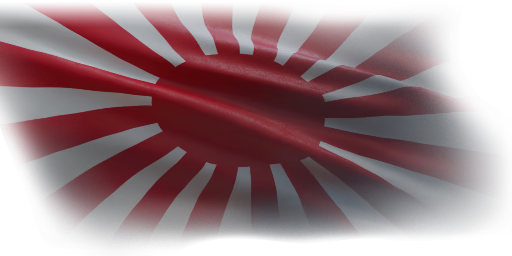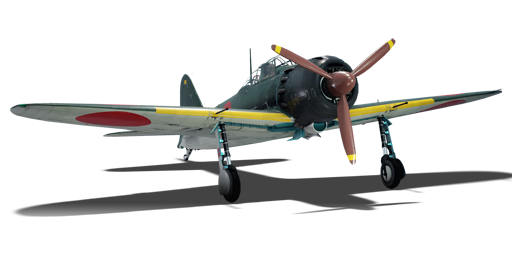



The A6M5 mod. 52 Kō, designated as the Type 0 Carrier-based Fighter Model 52A (零式艦上戦闘機五二型甲), is the first minor modification of the A6M5. The Model 52A (Kō) switches out the drum-fed Type 99 mod.2 mark 3 (20 mm) for the belt-fed Type 99 mod.2 mark 4 (20 mm), increasing the total ammo count to 250 rather than 200.
It has been in the game since the start of the Open Beta Test prior to Update 1.27. With all the modifications done to the A6M5 over the other A6M, performance improved but faces stronger enemy aircraft which proportionally perform even better. While still unrivalled in manoeuvre dogfights capable of dodging, weaving, and out-turning the pursuer into getting on their six, staying on the six of an aircraft will be harder to maintain due to the higher top speeds all other aircraft will have over the A6M5. The A6M5 Ko comes with slightly more 20 mm ammo giving it more chances to attack more often. As the last main-production A6M, the A6M5s in War Thunder also come with a late-war modification which allows them to be converted into "bakusen", mounting a 250 kg bomb in place of the centreline drop tank.
It was removed from the store at the end of the 2023 Summer sale but was made available temporarily for purchase in-game with Golden Eagles for the 2024 "National Foundation Day in Japan" mini-event.
flaps
flaps
flaps
brake
| Belt | Belt filling | Armor penetration (mm) at a distance: | |||||
|---|---|---|---|---|---|---|---|
| 10 m | 100 m | 500 m | 1000 m | 1500 m | 2000 m | ||
| T/FI/FI/APHE | 26 | 24 | 17 | 10 | 6 | 4 | |
| HEF-T/HEF/HEF/APHE | 26 | 24 | 17 | 10 | 6 | 4 | |
| APHE/APHE/APHE/APHE/HEF/HEF-T | 26 | 24 | 17 | 10 | 6 | 4 | |
| HEF-T | 4 | 4 | 4 | 4 | 4 | 4 | |
| HEF/HEF/HEF/APHE/APHE | 26 | 24 | 17 | 10 | 6 | 4 | |
| Belt | Belt filling | Armor penetration (mm) at a distance: | |||||
|---|---|---|---|---|---|---|---|
| 10 m | 100 m | 500 m | 1000 m | 1500 m | 2000 m | ||
| T/AP/IAI/AP/I | 13 | 12 | 7 | 3 | 2 | 0 | |
| T/AP/IAI/AP | 13 | 12 | 7 | 3 | 2 | 0 | |
| T/T/T/AP | 13 | 12 | 7 | 3 | 2 | 0 | |
| I/AP/AP/AP/IAI | 13 | 12 | 7 | 3 | 2 | 0 | |







 2 x (85 / 225 / 450) %
2 x (85 / 225 / 450) % 
 2 x 166 %
2 x 166 % 

Flight performance | |
|---|---|
Survivability |
|---|
Weaponry | |
|---|---|